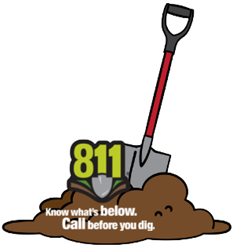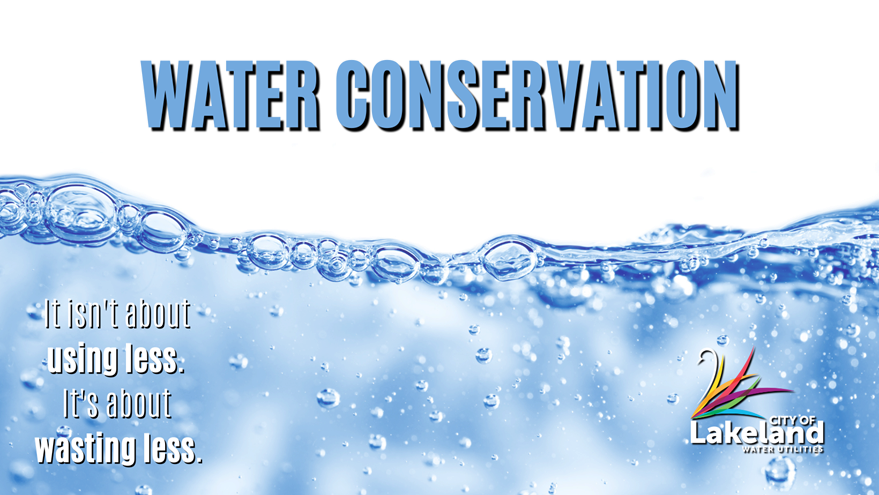Phase 2 Water Shortage Declared by Southwest Florida Water Management District
Effective February 8, 2026 - July 1, 2026
LakelandGov.Net/Irrigation
Why is My Water Usage So High?
The two most common reasons for high water consumption are leaks and irrigation. In fact, approximately 60% of the water used by a household is used outside. Once water passes through the water meter, the homeowner becomes responsible for the water usage. The City has no way of knowing specifically how that water was consumed, whether in your home or outside in your yard. Other potential sources of high consumption include: pressure washer cleaning, filling a pool, washing vehicles, laundry loads, long showers, and new sod or plants. Check out the "Conservation Tips" section for ways to save water.
Phase II Water Shortage Declared
Have you checked your irrigation system lately?
Nearly 60% of residential water use happens outdoors. Make sure your irrigation system is set to run only on your designated watering days and times, and check that all sprinkler heads, pipes, and rain sensors are working properly. For more information about City of Lakeland irrigation restrictions, check out LakelandGov.net/irrigation and follow us on social media @lakelandgov!
To report an irrigation-related problem within City Limits, complete a Citizens Action Center Report.
Congratulations City of Lakeland Water Utilities!

At the 2023 Florida Section American Water Works Association Fall Conference, the City of Lakeland received a first-place Best in Class for the Water Conservation Award of Excellence. In fiscal year 2023, the City saved approximately 110,649 gallons per day through active conservation implementations!

The City of Lakeland Water Utilities made a splash in 2024 by earning its first WaterSense Award for Excellence in Education and Outreach. The City attended more than 20 events and creatively educated attendees by displaying a mini “green” home model—a dollhouse featuring WaterSense® labeled toilets and ENERGY STAR® certified appliances, as well as rain sensors, microirrigation, and a rain barrel to educate the public on ways to save water. The City also helped organize the annual Seven Rivers Water Festival with a few other local utilities. The festival highlights water conservation and natural resource stewardship. The City of Lakeland Water Utilities was also active in the classroom, participating in The Great American Teach-in, after-school Boys & Girls Clubs’ workshops, summer library events, and the Spring Break STEAM (science, technology, engineering, arts and mathematics) program, where they taught about water-saving practices. On social media, the City shared water conservation tips with over 80,000 followers on Facebook and Instagram through their Water Wednesday posts.
Important Reminders:
DID YOU KNOW- On average, 60% of the water used by residential households is used outside, specifically through high-volume irrigation.
The District is currently under a Phase II Water Shortage. The irrigation schedule has been limited to one-day-per-week. See the new schedule below and watermatters.org for more info.
Below you'll find the City of Lakeland's irrigation schedule along with tips on how to program an irrigation timer.


Always Call Before You Dig
Call 811 from anywhere in Florida two full business days before digging, and your call will be routed to us. Tell the operator where you're planning to dig, what type of work you will be doing and your affected local utility companies will be notified about your intent to dig. In a couple days, they'll send a locator to mark the approximate location of underground lines, pipes and cables in your yard, so you'll know what's below - and be able to dig safely.
Click Here for more Information from Sunshine811.



















